第9章 I(6)
While all these things were going on, Mr. Benjamin Douglass Perkins was calmly pocketing money, so that after some half a dozen years he left the country with more than ten thousand pounds, which had been paid him by the believers in Great Britain. But in spite of all this success, and the number of those interested and committed in its behalf, Perkinism soon began to decline, and in 1811 the Tractors are spoken of by an intelligent writer as being almost forgotten. Such was the origin and duration of this doctrine and practice, into the history of which we will now look a little more narrowly.
Let us see, then, by whose agency this delusion was established and kept up; whether it was principally by those who were accustomed to medical pursuits, or those whose habits and modes of reasoning were different; whether it was with the approbation of those learned bodies usually supposed to take an interest in scientific discoveries, or only of individuals whose claims to distinction were founded upon their position in society, or political station, or literary eminence; whether the judicious or excitable classes entered most deeply into it; whether, in short, the scientific men of that time were deceived, or only intruded upon, and shouted down for the moment by persons who had no particular call to invade their precincts.
Not much, perhaps, was to be expected of the Medical Profession in the way of encouragement. One Dr. Fuller, who wrote in England, himself a Perkinist, thus expressed his opinion: "It must be an extraordinary exertion of virtue and humanity for a medical man, whose livelihood depends either on the sale of drugs, or on receiving a guinea for writing a prescription, which must relate to those drugs, to say to his patient, 'You had better purchase a set of Tractors to keep in your family; they will cure you without the expense of my attendance, or the danger of the common medical practice.' For very obvious reasons medical men must never be expected to recommend the use of Perkinism. The Tractors must trust for their patronage to the enlightened and philanthropic out of the profession, or to medical men retired from practice, and who know of no other interest than the luxury of relieving the distressed. And I do not despair of seeing the day when but very few of this description as well as private families will be without them."
Whether the motives assigned by this medical man to his professional brethren existed or not, it is true that Dr. Perkins did not gain a great deal at their hands. The Connecticut Medical Society expelled him in 1797 for violating their law against the use of nostrums, or secret remedies. The leading English physicians appear to have looked on with singular apathy or contempt at the miracles which it was pretended were enacting in the hands of the apostles of the new practice. In looking over the reviews of the time, I have found little beyond brief occasional notices of their pretensions; the columns of these journals being occupied with subjects of more permanent interest. The state of things in London is best learned, however, from the satirical poem to which I have already alluded as having been written at the period referred to. This was entitled, "Terrible Tractoration!! A Poetical Petition against Galvanizing Trumpery and the Perkinistic Institution. Most respectfully addressed to the Royal College of Physicians, by Christopher Caustic, M. D., LL. D., A. S. S., Fellow of the Royal College of Physicians, Aberdeen, and Honorary Member of no less than nineteen very learned Societies." Two editions of this work were published in London in the years 1803 and 1804, and one or two have been published in this country.
"Terrible Tractoration" is supposed, by those who never read it, to be a satire upon the follies of Perkins and his followers. It is, on the contrary, a most zealous defence of Perkinism, and a fierce attack upon its opponents, most especially upon such of the medical profession as treated the subject with neglect or ridicule. The Royal College of Physicians was the more peculiar object of the attack, but with this body, the editors of some of the leading periodicals, and several physicians distinguished at that time, and even now remembered for their services to science and humanity, were involved in unsparing denunciations. The work is by no means of the simply humorous character it might be supposed, but is overloaded with notes of the most seriously polemical nature. Much of the history of the subject, indeed, is to be looked for in this volume.
It appears from this work that the principal members of the medical profession, so far from hailing Mr. Benjamin Douglass Perkins as another Harvey or Jenner, looked very coldly upon him and his Tractors; and it is now evident that, though they were much abused for so doing, they knew very well what they had to deal with, and were altogether in the right. The delusion at last attracted such an amount of attention as to induce Dr. Haygarth and some others of respectable standing to institute some experiments which I shall mention in their proper place, the result of which might have seemed sufficient to show the emptiness of the whole contrivance.